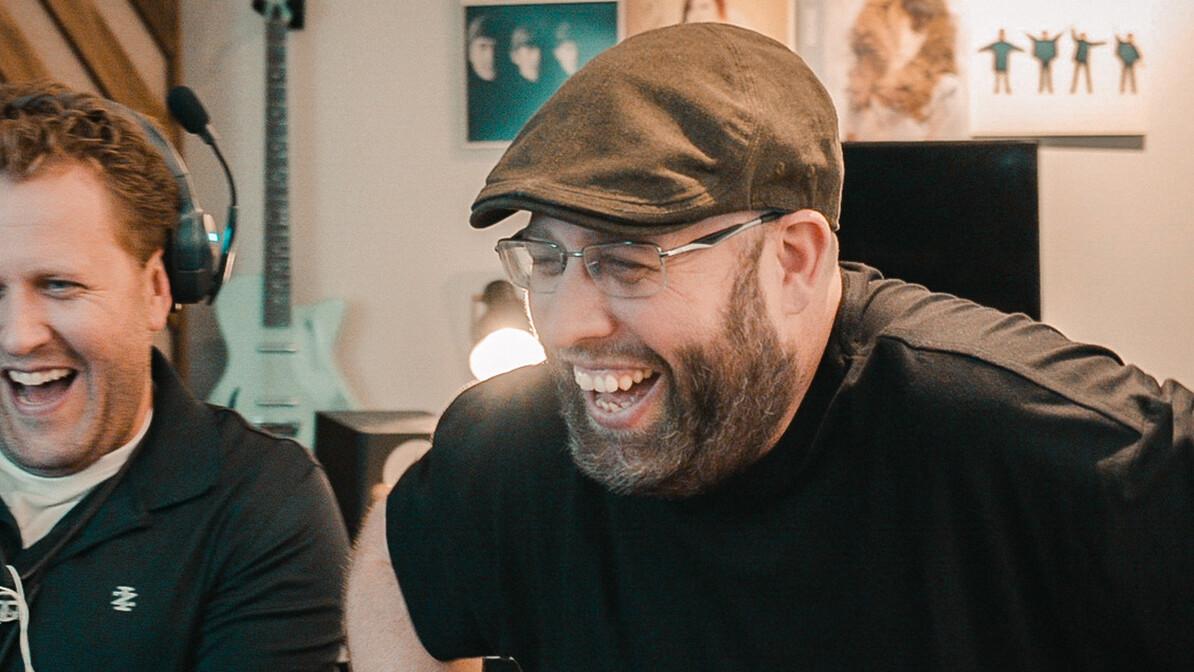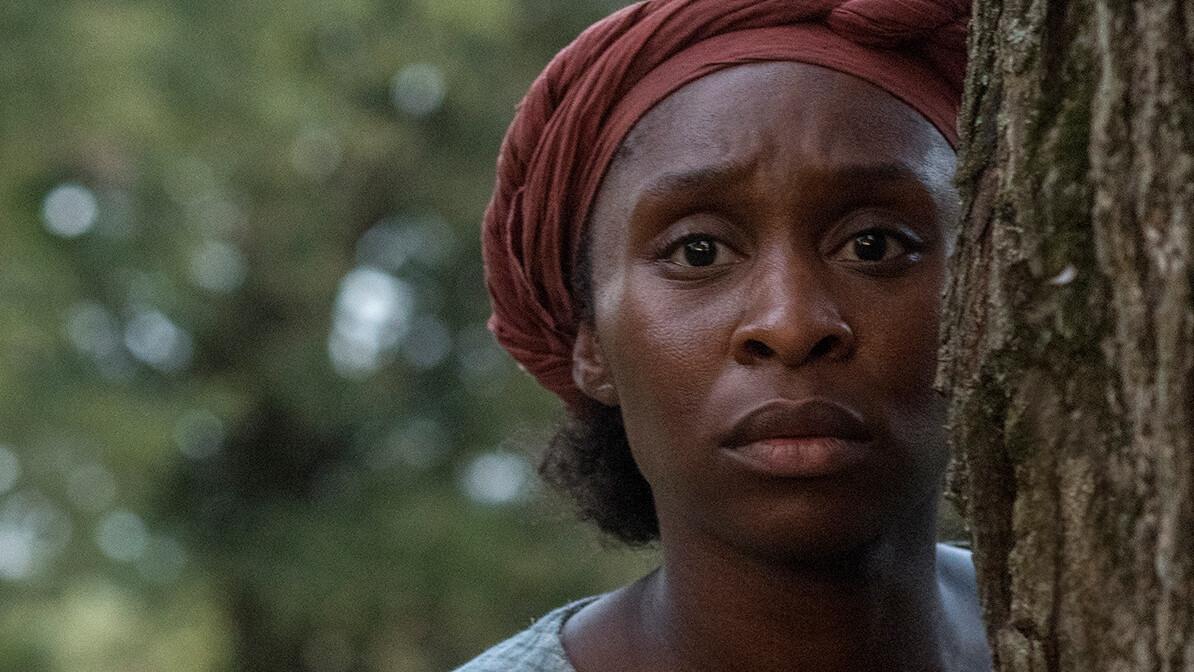- Home
- Entertainment
- Andrew Erwin: A Passion for Telling True Stories (Part 1)

Andrew Erwin: A Passion for Telling True Stories (Part 1)
John Farrell: What was the inspiration for creating Kingdom Story Company?
Andrew Erwin: The inspiration for it came from Tony Young, who’s the chairman of our board. He pulled a group of filmmakers together after my brother and I had just finished the movie Woodlawn. He pulled us into a room with many of the other faith filmmakers that do products of faith and challenged us to think about what we could do together that we couldn’t do separately. What would it be like to have a place where we could all collaborate?
I felt that that would never really happen. Getting everybody to work together for the same goal would be very difficult. But Jon and I went on to make our movie, I Can Only Imagine, and that became a breakout hit in 2018. It just opened doors that we never thought possible.
My brother, Jon, had really caught the vision that Tony had originally cast for us. He said, “What if we could do this?” The idea was to start a film production studio and that if it existed, we’d all put in our job application right away. We did that, and Lionsgate decided they really wanted to invest heavily in the faith market and to legitimize that. So, they made us an offer for a first-look deal that was incredibly rare and allowed us to make the product that we really desired for the audience that we love.
We started recruiting other filmmakers that we felt like would really play a key role in that dream. It’s just become a collaborative atmosphere to where products like this can get made.
JF: Why faith-based films versus the more secular projects, which if done right could potentially be just as successful as what you’ve done in the faith-based niche?
Andrew: You know, I think it’s becoming less and less of a niche. Jon and I really believe that faith is not a genre, it’s an audience. A faith-based movie can be anything from a comedy to an action movie to sports to drama. It can cover the gamut, but it’s really a reason why behind the story, and it really is about the audience that you serve.
Jon and I are part of that faith audience. Being people of faith, as filmmakers, our Christian faith is very important to us. So, we gravitate toward stories that include those values of love, forgiveness, hope, and redemption. And if it is presented properly, we feel like appeals far beyond just the faith audience. It appeals to people regardless of what they believe. But our beliefs are firmly in that material because those are the kinds of stories we gravitate toward.
The other thing is we gravitate toward true stories. Our background is documentary film work. We love true stories, and the true stories that really grab our hearts are the ones that have redemption at the core.
It’s an audience that we serve. We champion that audience, but we feel like when done correctly, like you saw with I Can Only Imagine and other films that have been able to do that, there’s a tremendous crossover appeal if you embrace your audience and embrace the differentiators of what makes you unique. It opens those doors much wider and allows the curious, benevolent skeptic to come in the doors and check out this film that they’ve heard a lot about and allows it to kind of have a broader appeal.
JF: What kind of impact do you hope your movies have on audiences?
Andrew: For us, we really have made our brand about a rush of hope. People need hope now more than ever, especially in this climate. They’re looking for something to believe in, something to anchor to. So for us, we look for stories that have that rush of hope. We want audiences to walk away with a desire to feel like nobody’s beyond redemption, no situation is too bleak for hope to creep in. If we can leave people feeling that, it allows them to search out more and more of where that hope can be found.
JF: Why is that message of hope so important today, especially with COVID-19 pandemic?

Andrew: The thing that I’ve noticed so much with the COVID thing going on – beyond the actual dangers of real-life situations that need to be taken seriously – is the panic and fear of people who get blown with the wind this way and that. Just a lot of mass panic.
I think that jaded kind of storytelling quickly got chipped away at in this environment because people were wanting something that they can look to that would give them hope that it’s going to get better. I think that for us, telling the stories of faith that point toward redemption, that point toward a loving God that doesn’t waste the hardships or the pain, but allows them to be redeemed for good. Those stories all of a sudden resonate, and the things that people would typically laugh off they crave during this time.
I’ve seen there be a desire for more products like this as the times have been bleak. I think, now more than ever, that message resonates.
JF: What was it specifically about Bart Millard and Jeremy Camp and his first wife Melissa’s stories that attracted you, your brother, and your companies, Erwin Brothers and now Kingdom Story Company?
Andrew: We fell in love with true stories with our story Woodlawn. We just love telling true stories, and Woodlawn was a story that we grew up hearing as a bedtime story. My dad grew up in Birmingham during the time that it was taking place, and he would always talk about this amazing experience that happened to this football team toward the end of early integration in the Southeast.
It was just an amazing story of hope and redemption. We just fell in love with that story as kids. So, to tell that story and bring it to life was really an amazing experience.
When we stumbled on Bart’s story, we had determined that the stories we’re attracted to are the kind of underdog stories of redemption. Stories of people that in their bleakest hour somehow find hope. So Bart’s story was about this song that we all love and the story behind it of this abusive father who found redemption right at the end of his life and was able to find that through his son who went on to write this song. That story of redemption just captivated us.
What really sold us on doing the story is my brother asked Bart, “If I were to ask you if there was a God, what would you say? You know, if your life depended on it.” Bart said, “Absolutely, I would say there’s a God because of the change I saw in my father. My father was a monster and I saw God change him from a monster to my best friend. The man I always wanted to be. And if the gospel can change that dude, the gospel can anybody.” The gospel means “good news.”
When we heard that story, we were like “we want to tell that story.” Then to see it resonate on such a large scale and to have an $86 million box office and really have that kind of a phenomenon really allowed us to be attracted to more stories like that.
When it came to I Still Believe – the Jeremy Camp story – I wasn’t interested in doing another music story right away. But when I sat down with Jeremy, and we were talking and interviewing him, he started talking about this love relationship with his first wife, Melissa. It was such a beautifully tragic love story of real love, of true love, that it moved my soul. When a story moves me like that emotionally, it’s a story that I have to tell. But, we look for stories like that.
With the next story that we’re telling we go back to football. We’re telling the Kurt Warner story, a movie called American Underdog that [is scheduled to release in Decmeber 2021].
Those were true stories. We don’t really go out looking for them, they just kind of find us, but when it moves us emotionally and really moves our soul, those are the stories that we have to tell.
JF: I had an opportunity to talk with Jeremy Camp prior to I Still Believe’s release. One of the things he said was that his favorite thing about the movie was how accurate it was. Can you talk a little about the accuracy and the struggle between keeping the movies accurate and embellishing them a little to make a more compelling story?
Andrew: Everybody says that their life story needs to be a movie at some point or another, but very few people have the actual ingredients and story that would make a movie. It’s not about a bunch of events in somebody’s life. It’s about one thing.
One of the first things we tell people when we finally stumble onto one of those true stories that has all the ingredients to be a feature film is that Aaron Sorkin has a great quote: “Doing a true story as a feature film is not doing a photograph of your life, it’s doing a portrait.”
We like to know the individual inside and out so that we can paint an accurate portrait of their life. We have to condense an entire life experience down to one moment and that to a two-hour window with compressed characters and that type of thing. So, a lot of what we do to adapt it to the screen is just compression. It’s just sequencing it right and trying to get it on screen in two hours and getting the characters down to where they’re distilled to what’s absolutely necessary.
Little things will change along the way. For instance, in Bart’s story, in real life he had a brother in his story, but the truth was his brother had already gone off to college when Bart’s father became abusive. As a result, his brother never knew the father that Bart knew. So, we decided to make it Bart’s story of his relationship with his father and we didn’t really include his brother. Different things like that.
With Jeremy’s story, the character Jean-Luc is a compression of his mentor Jean-Luc, who was with the band, the Cry, and this guy Jason, who led a Bible study and was initially interested in Melissa. Little things like that we combined into one character with the permission of the people in real life.
But the events, the main parts of the story that are the critical parts, sometimes they’re word for word what happened. That last moment in the hospital where she wakes up and says, “I’m healed. You have to believe me, it’s all gone. I’m better.” That actually happened word for word.
Trending Now
Sign up today for your Inspiration Today Daily Newsletter
Supercharge your faith and ignite your spirit. Find hope in God’s word. Receive your Inspiration Today newsletter now!
John Farrell
John Farrell serves as the Digital Content Manager at Inspiration Ministries, where he oversees the planning, organization, and management of website content to support the ministry's global digital outreach. With a strong background in writing and editorial strategy, John ensures that the articles, devotionals, and discipleship resources on Inspiration.org are accurate, engaging, and aligned with the ministry's mission.
John has authored more than 1,000 articles, press releases, and features for Inspiration Ministries, NASCAR, Lionel, and Speed Digital. His versatility as a writer is also showcased in his 2012 book, The Official NASCAR Trivia Book: With 1,001 Facts and Questions to Test Your Racing Knowledge.
A graduate of Appalachian State University, John brings excellence and attention to detail to the digital experience at Inspiration Ministries. He lives in Concord, N.C., with his wife and two sons.
Related Articles
March 10, 2025
Finding Total Victory on the Road to Championship
I have been playing competitive golf for 55 years. Through the various stages of my life, my…
March 7, 2025
Average Joe Movie: SCOTUS, Praying Football Coach Backstory
When Coach Joe Kennedy knelt to pray at the 50-yard line after a high school football game, he had…
February 28, 2025
The Power of Story: A Muslim Journey to Hope
Storytelling is one of the oldest and most powerful ways to touch the human heart. Parents tell…
February 27, 2025
‘Harriet’ Movie: Courage, Freedom, Faith
Antebellum abolitionist Harriet Tubman had convictions and courage that helped free herself…
Next Steps To Strengthen Your Walk
Inspiration Today Newsletter
Supercharge your faith and ignite your spirit. Find hope in God’s word. Receive your Inspiration Today newsletter now!
Christian Articles
Find articles to strengthen your walk and grow your faith. We have a wide range of topics and authors for you.
Submit A Prayer Request
We are here for you. Simply click on the button below to reach us by form, email or phone. Together we will lift our hearts and voices with you in prayer.





